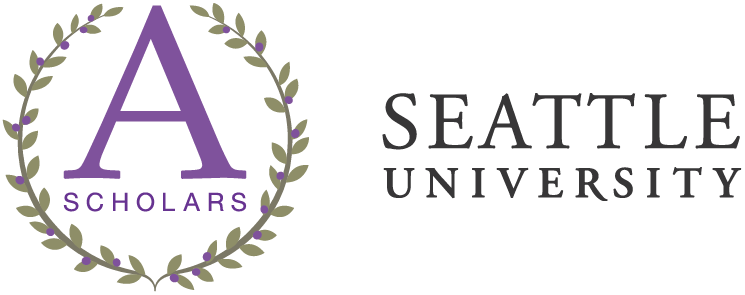Nizama Djuderija
B.A., magna cum laude, Criminal Justice, 2018
Fulbright Scholar, Bosnia & Herzegovina, 2018 – 2019
Criminal Defense Investigator, King County Department of Public Defense, The Defender Association Division
Nizama’s passions have always been fueled by civility. She immigrated from the Western Balkan country of Bosnia and Herzegovina, because the country she once called home was torn apart by war and left with deep ethnic divisions. As a result, peace and conflict have always been a pivotal interest in her studies. Her work as the Director of Outreach and Communications for the Bosnian American Institute here in Seattle enables her to spread awareness about genocide and war crimes. Nizama hopes to study international law and continue her studies by advocating for genocide awareness. Nizama completed a 9-month Fulbright Research Grant Award to Bosnia & Herzegovina. Her project was titled The Bosnian War: Political Affiliation as a Means to Camouflage Criminality. She currently works as a Criminal Defense Investigator at the King County Department of Public Defense, The Defender Association Division.
Highline College, Associate of Arts in Criminal Justice, 2016
Service:
Founder of an organization to help Bosnian orphans, Djecija Ljubav
Communications Director, Voices of The Bosnian Genocide Organization
Youth Instructor for Islamic Community of Bosnians
Ashoka Seattle
Awards/honors:
TRIO Outstanding New Participant
English Department Honors, Highline College
Goals: I would like to pursue a career in international law, where my presence could change the thinking of world peace. I seek a job in which my creative ideas could spark intuition into any demographic to feel the need that change can be brought from the bottom up, starting with ourselves. I have a burning passion and need to pursue an occupation in which I can bring civility – something my country was not used to after being tortured for our identity. This can become a positive step in a place that otherwise doesn’t believe improvement is possible after such tragedy.
Civility: Being bullied in school has made me a stronger person who understands the power of empathy. During 2011 the media was at an all-time high with Islamophobia as much as it is today. Most students knew I was Muslim, and it was never a topic of discussion. After news of Osama Bin Laden being captured headlined the news, my life changed. “Nizama Bin Laden” would be shouted down the hallways, several students forming groups around me and asking me sarcastic questions just to get a reaction from me. This period reminded me of my childhood, the continuous name-calling jabbing through me like swords. Being made fun of created a fear within me, preventing me from truly doing what I wanted to do at the time, destroying my well-being. It wasn’t just hurtful words that ran through my thoughts; it was the entire act of harassment that translated into a fear of doing anything because I felt a bully would be beside my shoulder.
Instead of avoiding the bullies, I now realize that I could have seen my bullies as individuals that had underlying reasons in their personal lives for the way they were treating me – that pivotal decision to put myself in their shoes. It is possible that the only things they knew about Islam were from the media. I could have helped them and educated them about the religion of Islam, rather than allowing their discriminatory words to define me.
Allowing others to have their voices heard when they speak to me will in return make sure they’re aware their voice has been heard, and at the same time, this active listening reinforces my chance to give feedback in a constructive manner. When I am socially aware of what effect my words have to another individual, that awareness provides a sense of care and empathy. This in return brings the opportunity to express positive feelings and ideas that can one day turn into reality. This teaches a lesson to society that love wins all, and no hate group can rise above that.
Autobiography: I am truly passionate about learning all aspects of the justice system as well as the power it holds to make a positive change in our society when civility, efficiency, and critical thinking is used.
Coming to the U.S. as a refugee from the post-genocide country of Bosnia and Herzegovina, I learned from a young age what effects discrimination can have on a country, leading it to war. I speak both English and Bosnian. My perspective and background have pushed me to continue to pursue the field of law, and I hope to study International Law after receiving my bachelor’s degree. Many political/social issues are still present in my home country. I aspire to work in the International Criminal Tribunal for Yugoslavia someday because I feel that the Balkans are in dire need of justice in order to reform the war criminals that orchestrated a modern-day holocaust.
I feel so inspired by the Alfie Scholars Program because in whatever field I end up pursuing, I want to help others in my work. The great thing about civility is that it can be manifested in any period in your life, wherever and with whomever you are around. In return, when that is implemented, the root of change can spark for our communities to be models for the world.

